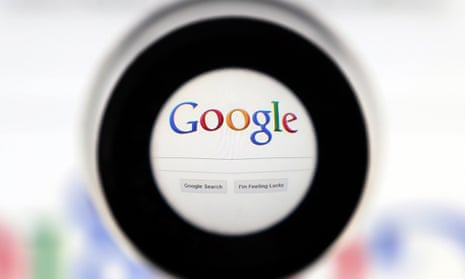What do Google and Scotland have in common? One is a territory bravely battling for its independence and freedom against a biased press and a vicious, manipulative “no” campaign waged by out-of-touch institutions, and the other is a country at the north end of the British Isles. Last week the decade-long feud between the world’s favourite search engine and the world’s publishing organisations sputtered back to life.
European publishers lobbying against a proposed EU competition settlement with the search giant had already registered vocal objection, and last week Rupert Murdoch’s US-based News Corp weighed in. Its chief executive, Robert Thomson, described Google as a “platform for piracy” as he sought to dissuade EU competition commissioner Joaquin Almunia from letting Google off the hook with a billion-dollar fine. In somewhat emotional terms Thomson wrote:
“The shining vision of Google’s founders has been replaced by a cynical management, which offers advertisers impressively precise data about users and content usage, but has been a platform for piracy and the spread of malicious networks, all while driving more traffic and online advertising dollars to Google.”
Five years ago Thomson, the former Times editor who loves nothing more than some artful alliteration garnishing his regulatory interventions, described Google as one of the “tech tapeworms in the intestines of the internet”. Now he suggests not so much a nasty tummy problem, but more a rampant flesh eating virus which will devour not just tiny newspapers but democracy itself. Thomson’s missive continues:
“The internet should be a canvas for freedom of expression and for high quality content of enduring value. Undermining the basic business model of professional content creators will lead to a less informed, more vexatious level of dialogue in our society.”
It is worth reading the whole of Thomson’s letter to the EU as it is both very specific (Google is not pointing readers to our websites) and wildly broad and accusatory (Google is responsible for the rise of extremism in Europe). Straying into what one might call speculative territory, Thomson carries on that the business of producing “biased” search results will undermine the principles of civilised society:
“There will be no shortage of opinions, in fact, opinions will proliferate, but they will be based on ever flimsier foundations. The quality of discourse will inevitably deteriorate and the intemperate trends we are already seeing in much of Europe will proliferate.”
This is a train of argument that might be interesting were it not coming from a publishing company that once addressed the EU Commission president by printing “Up Yours Delors” on the front page of the Sun. Coarsening discourse and corrupting democracy are platforms News Corp might want to avoid standing on too firmly. Although in fairness only one former editor is in jail for illegally listening to the phone calls of private citizens.
One wonders whether releasing the letter on the same day as the independence referendum was held was a case of a good day to bury purple prose.
The avalanche of objections to the EU reaching a lenient settlement with Google come at the end of a four-year investigation into anti-competitive search practices. Once the settlement is reached it holds for five years, which as Thomson quite correctly points out in his letter is an eternity in “internet time”. While it is all too easy to mock Thomson’s epistle, the broad sweep of the existential anxiety on display speaks to a wider truth. Google is too big. It is too powerful. It is too opaque. Its paradox is that we can neither live with the uncertainty of Google’s influence or indeed without the power of its information.
Its market capitalisation is twice that of Scotland’s GDP. And at a time where the broader public feels failed by domestic politics and corporate entities step in to fill the service gap, Google is a significant part of that shift.
There are many reasons for the EU to much more robustly police Google, but the failure of newspaper websites to garner enough traffic is not one of them. In the past four years not only has Google grown, but so have news organisations that actively use social platforms and search engines to support their business models. The older legacy publishers don’t speak for the news industry because in that sense, there is no longer one industry. Google is a global utility and needs treating as such. It is not our friend, but it deserves better enemies.










